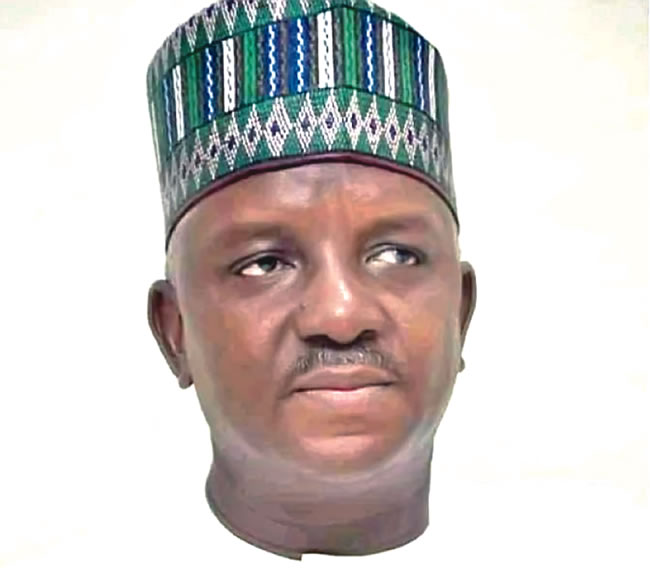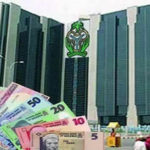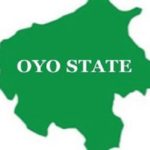The Nigerian Electricity Supply Industry (NESI) is characterised by various challenges hindering the delivery of stable power supply to Nigerians. ADETOLA BADEMOSI writes on the issues bedeviling the sector and likely solutions.
Since the power sector privatization in the country, the hope of incremental, stable supply has remained forlorn despite various interventions. Challenges in the sector are seemingly multidimensional and require the joint effort of all key players to address.
Nigeria’s erstwhile Power Holdings Company of Nigeria (PHCN) was in 2013, unbundled into six generation companies(GenCos) and 11 electricity Distribution Companies (DisCos) sold to core private sector investors.
The essence of the privatisation was to establish a competitive market aimed at improving management and efficiency, attract private investment, increase generation, and provide reliable and cost-effective power supply to Nigerians.
The value chain comprises the electricity Generation Companies (GenCos), Transmission Company of Nigeria (TCN) and the electricity Distribution Companies (DisCos), in all, the Federal Government still holds a 40 per cent stake in the sector.
But in almost seven years, the sector’s challenges have continued to abound as a result of which some stakeholders are calling for reversal of the power sector privatisation or recapitalization of the DisCos.
The major issues according to key players in the industry are liquidity challenges, obsolete infrastructure, legacy debts and regulatory issues among others.
Major post privatization challenges
The problem with the power sector has remained largely unresolved and rather, players in the Nigeria Electricity Supply Industry (NESI) take delight in buck-passing. The sector is characterised with huge challenges, which have made it commercially unviable. Apart from DisCos’ liquidity problems, others include inadequate gas supply, weak transmission infrastructure and foreign exchange procurement.
First of these, is the tariff shortfall occasioned by non-cost reflective tariff and removal of collection loss component of the Aggregate Technical, Commercial and Collection (ATC&C) losses.
According to the Bureau of Public Enterprises (BPE), in the Multi-Year Tariff Order (MYTO),the Nigerian Electricity Regulatory Commission (NERC) had prior to the power sector privatization transaction, estimated the ATC&C to an average of 25 per cent.
However, it said after the handover to the core investors on November 1, 2013, a study conducted by NERC revealed that the actual losses were to be 49 per cent, as a result, the regulator had in 2014, come up with a new MYTO which took effect on February 1, 2015.
But in 2015, BPE said the regulator removed collection losses from ATC&C in March 2015, despite warnings that this would breach the contract signed with core investors when they acquired the successor companies.
It had warned that this would reduce the revenues in the power sector, thereby worsening the liquidity situation and that lenders would lose confidence in the regulator and would refuse to fund the investment programme of the distribution companies.
The BPE said the move was regardless taken and the industry is still reeling from its effect.
On the other hand, the electricity Distribution Companies (DisCos) have insisted that the non-review of the MYTO 2015 by NERC immensely contributed to the liquidity crisis in the industry.
The MYTO 2015 specified the electricity distribution tariffs for the period 2015 to 2024 but had an effective commencement date of February 1, 2016.
NERC was also required to carry out biannual minor reviews of the tariffs taking into consideration, the changes in certain macroeconomic variables outside the control of DisCos in line with the requirement of the MYTO methodology. These variables include inflation rates, foreign exchange rates, gas prices and available generation capacity.
However, these minor biannual reviews were not done, thus resulting in DisCos experiencing major tariff shortfalls.
According to the Executive Director, Research and Advocacy, Association of Nigerian Electricity Distributors (ANED), Mr. Sunday Oduntan, the electricity market recorded over N1.4 trillion shortfall because NERC failed to review the current tariff that came into effect in 2016.
“The current tariff that we have came on the 4th of February 2016. There has never been a single minor review. NERC where is the minor review? Due to this, our record shows a market shortfall figure in excess of N1.4 trillion on the value chain,” he said.
But in 2019, NERC announced the approval of the minor review for 2016 – 2018 of the Multi-Year Tariff Order (MYTO), which was issued in 2015.
This adjustment will account for changes in the relevant macroeconomic indices for 2016, 2017 and 2018, determine the cost reflective tariffs for the period and to ascertain revenue shortfall that has arisen as a result of the differential between such cost reflective tariffs and the actual end-user tariffs charged by the DisCos during these years.
There are, however, concerns as to whether the tariff review is comprehensive enough as it may not have reflected the actual ATC&C losses incurred by the DisCos during the period.
Infrastructure bottlenecks
Ideally, the power delivery model for Nigeria envisages a transmission wheeling capacity that is at least 20 per cent higher than the generation capability and a distribution capability that is at least 20 per cent higher than the transmission wheeling capacity.
The electricity Generation Companies (GenCos) on their part, have continued to lament poor transmission and distribution networks saying this is hindering them from maximizing their respective available capacities.
Dr Joy Ogaji, the Executive Secretary, Association of Power Generation Companies (APGC) said GenCos have doubled their available capacities from 4,214MW at takeover in 2013 to 8,145MW in 2020, with an installed capacity of 13,427 MW and expansion capacity of 20,000MW. She added that out of the 8,145MW available capacity, only 3,987MW is generated for Nigerians, leaving 4,159MW stranded as a result of constraints in the national grid capacity.
The Federal Government (FG) had also said DisCos would require a minimum of $43 billion investment in its network infrastructure as commensurate for the Transmission Rehabilitation and Expansion Programme (TREP).
Former Managing Director, Transmission Company of Nigeria(TCN), Usman Gur Mohammed, had raised concerns that while the transmission network infrastructure was being expanded through the TREP, this would bring no improvement, if DisCos were not making commensurate investment that would see to the sustainability of the networks across the country.
He was one of those, who also called for recapitalization of the DisCos saying: “This money should come in a form that there would be at least a 20-year repayment period and five years to review the technical and commercial losses.”
Power sector interventions
Since privatization, the Federal Government (FG) as well as international donors have given interventions with varying sums to improve the power sector.
In 2017, the Nigerian Bulk Exchange Trading Plc (NBET) entered into an agreement to borrow from the Central Bank of Nigeria (CBN) through the Ministry of Finance the sum of N701, 936,483,451 (N701 billion) for disbursement over a two-year period and repayable over a 10-year period. The purpose of the intervention was to implement the payment assurance program that guarantees energy payments for the GenCos and gas suppliers.
According to the CBN’s 2018 annual report a total grant of N1.095 trillion was given to the power sector under three different schemes it set up. The schemes and amount were; N213.4 billion Nigerian Electricity Market Stabilisation Facility (NEMSF) meant to settle outstanding payment obligations due to market participants and legacy debts owed by the Power Holding Company of Nigeria (PHCN) to gas suppliers, and the N701 billion Payment Assurance Facility (PAF) extended to the Nigerian Bulk Electricity Trading Plc (NBET) to settle invoices of generation companies (GenCos) to a minimum level of 80 per cent.
In 2019, the FG also announced another N600 billion intervention for payment of shortfalls in the payment of invoices. Recently, a sum of N200 billion was also approved to boost gas supply to the GenCos.
Also, the TCN in 2019 secured a total of $1.66 billion from the World Bank and other multilateral financing agencies for transmission rehabilitation and expansion projects. In a breakdown of the total sum, French Development Agency & EU Grant was $500 million, World Bank gave $486 million, AfDB gave $410 million, JICA granted $238 million to deliver capacitor bank in Abuja, Nasarawa and Lagos; while World Bank earmarked another $27m for the North Core Project.
Siemens power deal
In July 2019, President Muhammadu Buhari announced a new power deal with German firm Siemens to modernize and increase the Nigerian electricity grid capacity from its current capacity of about 5 GW to 25 GW. Under the three-phase agreement, Nigerians are expected to enjoy 7,000 megawatts of reliable power supply by the end of 2021 (Phase 1), 11,000 megawatts by the end of 2023 (Phase 2) and 25,000 by 2025.
Few weeks back, President Muhammadu Buhari directed the Ministries of Power, Finance, and the Bureau of Public Enterprise (BPE) to conclude the nation’s engagement with the firm over regular power supply. The directive, which was issued via the Presidency’s Twitter handle, was to start the pre-engineering and concessionary financing aspects of the Presidential Power Initiative (PPI), a power infrastructure upgrade and modernization programme agreed to by the Federal Government and Siemens AG of Germany, with the support of the German Government.
Arithmas Aron, the media aide to the Minister of Power, Saleh Mamman said the power deal is expected to take off in 2020, while also attributing the delay to the COVID-19 pandemic.
“The agreement will take off this year. Before the COVID-19 breakout, the former chief of staff to the President was in Germany and it was believed that it was when he went to Germany and came back through England that he contracted the Coronavirus. So after they had finalized the agreement, these people were supposed to come to Nigeria to begin their work,” he said.
What FG must do to address challenges in NESI
Dr.Ogaji of APGC proffered an urgent review of the Electric Power Sector Reforms Act (EPSRA), the Multi-Year Tariff Order, Orders made by NERC so far, policies, market rule and other governance documents in the NESI. She also called for immediate separation and unbundling of the Independent System Operator (ISO) and Transmission Service Provider (TSP) from the existing Transmission Company of Nigeria (TCN) to drive efficiency in the wheeling and allocation of power.
While also calling for local and foreign guarantees backed by the World Bank and African Development Bank(AFDB) as a means to enhance guaranteed payment plan for GenCos to enable them improve generation and implement expansion plans, she urged the FG to ensure transparency in the billing, collection and remittance.
“GenCos are of the position that there is need for a coordinated approach by all stakeholders in the NESI to realistically and sustainably address issues of the power sector so that Nigerians can have access to reliable electricity supply,” she said.
Similarly, the President, Nigeria Consumer Protection Network, Kunle Olubiyo, stressed the need for the FG to adequately address tariff issues which has immensely contributed to market shortfall.
“What we are lacking is sincerity of purpose and genuine leadership. To fix the power problems, if we do not get it right with tariffs, all the market shortfalls burden will be transferred to end-users,” he said.
He echoed the call for the unbundling of TCN even as he sought a review of the Electric Power Sector Reforms Act which governs the NERC.
Olubiyo said this is imperative to allow NERC have its own Act.
On his part, Mr. Oduntan of ANED maintained that what the FG must do is to technically and commercially align the value chain.
“This implies that if you are generating 10,000MWs, you must transmit 10,000MWs and distribute 10,000MWs, that is technical alignment.
“For commercial alignment, what this means is that from top to bottom, GasCos,GenCos, TCN, DisCos down to the end-users, we must know the landing cost of electricity and we must pay the appropriate price of that landing cost,” he said.
YOU SHOULD NOT MISS THESE HEADLINES FROM NIGERIAN TRIBUNE
Fresh Crisis Looms In APC •Party To Resolve 170 Petitions, May Dissolve State Excos
IF what is brewing in Lagos will hold true for many troubled state chapters of the All Progressives Congress (APC), the reconciliation bid of the national caretaker committee is likely to birth a fresh wave of crisis for… Read Full Story
Ajimobi’s Burial Site: Our choice of burial site not approved by Oyo govt —Family •We’ve granted them a waiver, but… —Govt
Fresh controversy over the final resting place of former governor of Oyo State, Senator Abiola Ajimobi emerged on Saturday as sources close to the family accused the Oyo State government of not approving their choice place for the burial of the former governor… Read Full Story
APC Derailing From Founding Ideals — Tinubu
NATIONAL leader of the ruling All Progressives Congress (APC) has reviewed the development leading to the dissolution of the party’s National Working Committee (NWC) and sounded an alarm bell that the party is derailing from its founding ideals… Read Full Story
UPDATE: Oyo State goes after private hospitals •Seals 5 clinics over quackery, more to follow
OWNERS of private medical facilities operating under unprofessional conditions are in trouble in Oyo State as the government, on Saturday, said it has sealed five private health facilities in Saki and Ibadan metropolis over unprofessional and illegal practices… Read Full Story
We’re Not Responsible For Delay In Ajimobi’s Burial ― Oyo Govt
The Oyo State Government has strongly denied insinuations that it is responsible for the delay in burying the immediate past governor of the state, Senator Abiola Ajimobi, who died on Thursday… Read Full Story
Deliver Edo, Ondo, Buhari tasks APC governors
PRESIDENT Muhammadu Buhari has given governors of the All Progressives Congress (APC) the marching order to reclaim Edo State from the Peoples Democratic Party (PDP), following its recent flipping to… Read Full Story
Adam’s Second Fall On The Eve Of EdoEN Election
SINCE its formation, the various political tendencies that came together under the aegis of the governing All Progressives Congress (APC) have found it difficult to evolve as a compatible ideological whole. Critics of the party have levelled a charge that APC was hurriedly put together to grab power and was consequently… Read Full Story
Edo, Ondo Elections: Whither The Opposition Parties?
In February this year, the Independent National Electoral Commission (INEC) ‘sanitised its register by retaining only 18 political parties. A total of 74 parties were axed by the commission as empowered by extant laws. The exercise came against the complaints from many quarters on the huge number of parties in… Read Full Story
Ajimobi: Last Supper With A Sanmonri, Constituted Into Authority
UNLIKE my wont, words failed me repeatedly this morning. Ever imagine billows of smoke failing to sprout out of the blacksmith’s forge? Or the canary suddenly failing to spit its melodious rhythm? But that has been my abiding forte in the last one hour or so. Writing, cancelling, rewriting, erasing, rewording and cancelling… Read Full Story
ONDO GOV ELECTION: Who Gets The Ticket In PDP?
AS the October 10 governorship election draws near in Ondo state, the people of the state are gearing up and studying political events in the state, it is apparent that the Peoples Democratic Party (PDP) is working hard to give the ruling All Progressives Congress (APC) a good fight in the election and take over power in the state… Read Full Story
FAAN Holds Dry Run Airport Simulation Exercise At Lagos, Abuja Airports
The Federal Airports Authority of Nigeria (FAAN) has held dry run simulation exercises at domestic terminals of the Nnamdi Azikiwe International Airport, Abuja and Murtala Muhammed Airport, Lagos… Read Full Story
WATCH TOP VIDEOS FROM NIGERIAN TRIBUNE TV
- Let’s Talk About SELF-AWARENESS
- Is Your Confidence Mistaken for Pride? Let’s talk about it
- Is Etiquette About Perfection…Or Just Not Being Rude?
- Top Psychologist Reveal 3 Signs You’re Struggling With Imposter Syndrome
- Do You Pick Up Work-Related Calls at Midnight or Never? Let’s Talk About Boundaries






